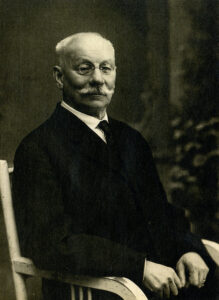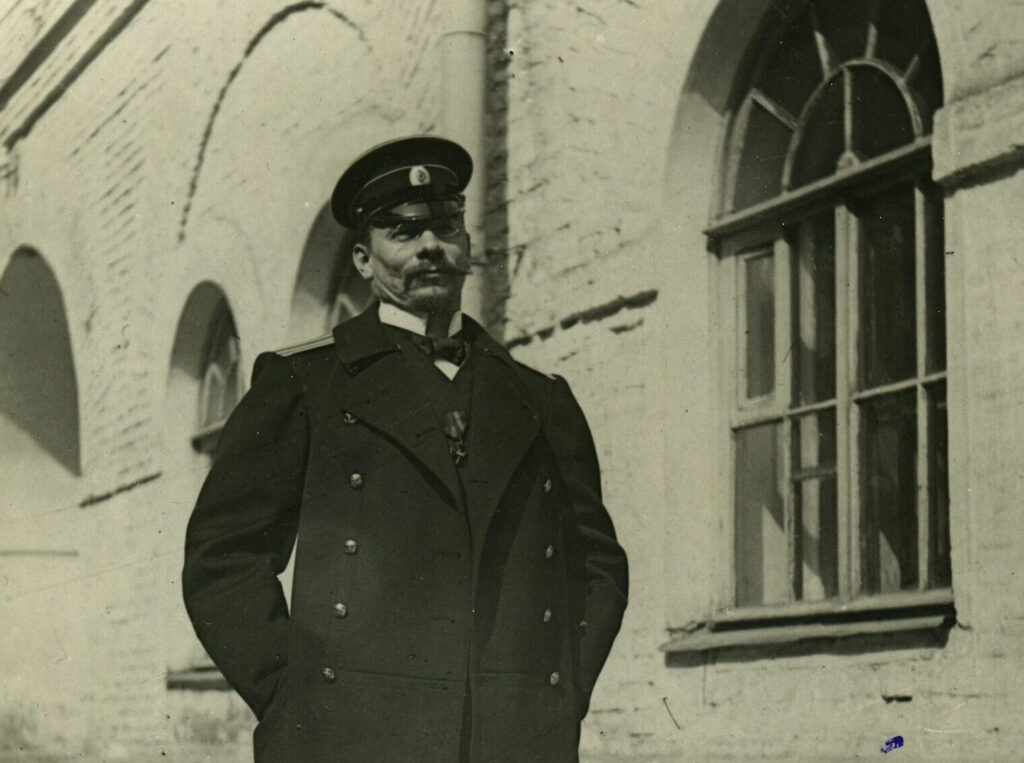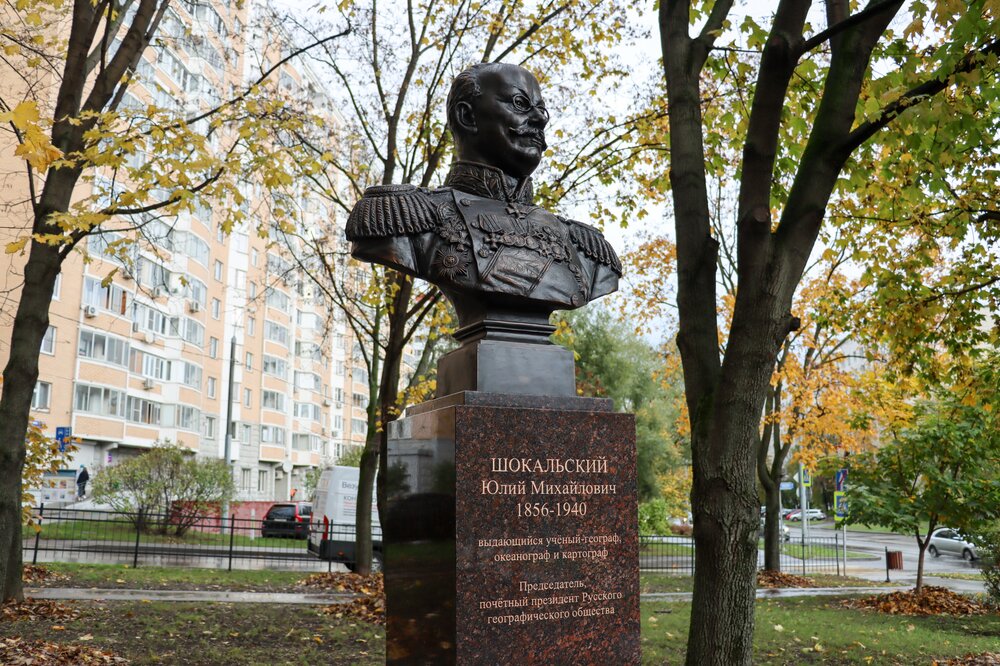Yuliy Mikhailovich
Shokalsky
1856-1940

Yuliy Mikhailovich Shokalsky was Russian and Soviet scientist-geographer, hydrographer, oceanographer, cartographer, Lieutenant General, Chairman of the Russian Geographical Society, Hero of Labor, Honored Scientist of the RSFSR. He was born in St. Petersburg, in the family of Ekaterina Ermolaevna Kern. She was a daughter of Anna Petrovna Kern. He was left without a father early. Grigory Alexandrovich Pushkin, the son of A. S. Pushkin, who lived for a long time in the village of Mikhailovskoye, helped Ekaterina Ermolaevna in the upbringing of her son. In 1877 Yuliy Mikhailovich Shokalsky graduated from the Naval Cadet Corps as a midshipman with the Nakhimov Prize. He was promoted to the rank of midshipman and immediately enrolled in the Nikolaev Maritime Academy a year later. After graduating from the hydrographic department of the Academy in the 1st category, he began scientific work in the field of geography. He was in charge of the Department of Marine Meteorology and Storm Warnings at the Main Physical Observatory. He was elected as a full member of the Russian Geographical Society, which was at that time the centre of geographical sciences in Russia. There was the famous geographer Pyotr Petrovich Semenov-Tyan-Shansky at its head (as Vice-Chairman). In 1914, after the death of Semenov-Tyan-Shansky, Yuli Mikhailovich became vice-chairman. Since 1907, he has been in charge of the Main Hydrographic Department for the exploration of the Russian seas and the entire World Ocean. He also introduced the concept of the “World Ocean” into science, considering all the oceans – Indian, Atlantic, Arctic, Pacific – parts of the World Ocean. Shokalsky summarized his long-term scientific work on the study of the seas in the major work “Oceanography”, which was published in 1917. For this scientific work, he was awarded the prize of the Russian Academy of Sciences in 1919 and the prize of the Paris Academy of Sciences in 1923. In 1918-1924, he participated in the work of the Interdepartmental Commission under the Main Hydrographic Department of the People’s Commissariat for Maritime Affairs of the RSFSR on the introduction of time counting according to the international time zone system. In 1923-1927 he led an oceanographic expedition for the comprehensive study of the Black Sea. He initiated the development of hydrographic research in the Arctic seas, was one of the leading developers of the scientific program for the development and use of the Northern Sea Route. He headed the Geodesic Committee of the USSR State Planning Committee and the Main Directorate of the Hydrometeorological Service. He taught at the Military Engineering Academy, Leningrad State University.
Address: Moscow, Shokalsky ave., 31, building 1

